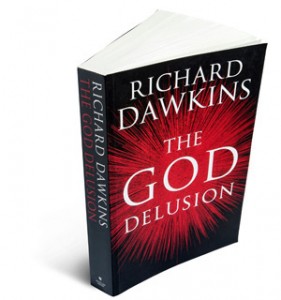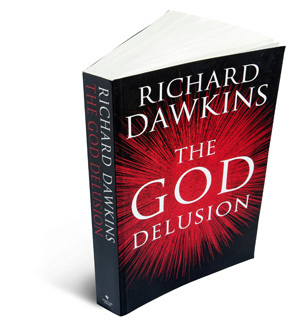 Dawkins 1 | God 0
Dawkins 1 | God 0
Richard Dawkins, in his continued attempt to mock the legitimacy of the Christian faith, references something he refers to as “The Great Prayer Experiment.” He explains…
...the physicist Russell Standard (one of Britain’s three well-known religious scientists, as we shall see) has thrown his weight behind an initiative, funded by – of course – the Templeton Foundation, to test experimentally the proposition that praying for sick patients improves their health.
Such experiments, if done properly, have to be double blind, and this standard was strictly observed. The patients were assigned, strictly at random, to an experimental group (received prayers) or control group (received no prayers). Neither the patients, nor their doctors or caregivers, nor the experimenters were allowed to know which patients were being prayed for and which patients were controls. Those who did the experimental praying had to know the names of the individuals for whom they were praying – otherwise, in what sense would they be praying for them rather than for somebody else? But care was taken to tell them on the first name and the initial letter of the surname. Apparently that would be enough to enable God to pinpoint the right hospital bed.
The very idea of doing such experiments is open to a generous amount of ridicule, and the project duly received it. As far as I know, Bob Newhart didn’t do a sketch about it, but I can distinctly hear his voice:
What’s that you say, Lord? You can’t cure me because I’m a member of the control group?…Oh, I see, my aunt’s prayers aren’t enough. But Lord, Mr Evans in the next door bed…What was that, Lord?…Mr Evans received a thousand prayers per day? But Lord, Mr Evans doesn’t know a thousand people…Oh, the just referred to him as John E. But Lord, how di you know they didn’t mean John Ellsworth?…Oh right, you used your omniscience to work out which John E. they meant…1
The study that Dawkins references was done in 2006. The two groups were further divided into three sub groups:
- people that knew they were being prayed for
- people that were being prayed for and did not know it
- people that received no prayers and didn’t know it
The results of the study were clear cut. There was no difference between those being prayed for and those who were not. There was a difference in the amount of suffering however, in that the people who knew they were being prayed for suffered more than those who weren’t being prayed for and had no clue. Bottom line: Prayer doesn’t work, God isn’t real and to believe otherwise is either complete stupidity or an example of a blind faith that resolves to believe regardless of the quantifiable evidence that exists to refute it.
Dawkins: 1 | God: 0
A Weak Response
Dawkins cites several theologians who embarrass themselves by attempting to explain the results in the context of how God either uses suffering to accomplish His Purposes or such studies are pointless in that they attempt to quantify God – which you can’t do.
It’s not that they don’t have a point. God does use suffering to strengthen a believer’s faith (Romans 5:3-5; 2 Cor 1:3-7). But it also says that you mourn with those who mourn (Rom 12:15). It is encouraging to know that God has a Purpose and He can be trusted when you’re going through a hard time, but you telling someone they should be “happy” when something terrible has happened is not always helpful. And saying that you can plot the Reality of God on a graph or prove His existence on a calculator is no different than saying you can package love in a shoebox or reproduce peace in a test tube. God is more than a “result,” just like a person is more than a photograph. Still, you should be able to expect some kind of material evidence to support the validity of the Christian faith and when a clergyman responds to a test like this by saying people should welcome suffering or God can’t be “proven,” their responses sound pretty weak and Dawkins’ argument appears to be all the more compelling.
If God’s real, and prayer supposedly is a person asking God for something, then it follows that, in a study such as this, you should see some kind of evidence that God is at least listening.
No?
Dawkins concludes by assuming that the “faithful” will soldier on, despite the lack of evidence and proof, and wait it out until they get the result they want.
But Wait
It’s interesting because, while the study Dawkins cites occurred in 2006, there’s an article in Newsmax magazine entitled, “Studies Prove the Healing Power of Prayer” that references several similar studies that produced much different results:
- The American Journal of Public Health studied nearly 2,000 older Californians for five years and found that those who attended religious services were 36 percent less likely to die during that period than those who didn’t.
- A study of nearly 4,000 older adults for the U.S. Journal of Gerontology revealed that atheists had a significantly increased chance of dying over a six-year period than the faithful.
- Crucially, religious people lived longer than atheists even if they didn’t go regularly to a place of worship.
- The American Society of Hypertension established in 2006 that church-goers have lower blood pressure than non-believers.
- Scientists have also revealed believers recover from breast cancer quicker than non-believers, have better outcomes from coronary disease and rheumatoid arthritis, and are less likely to have children with meningitis.
- Research at San Francisco General Hospital looked at the effect of prayer on 393 cardiac patients. Half were prayed for by strangers who had only the patients’ names. Those patients had fewer complications, fewer cases of pneumonia, and needed less drug treatment.They also got better quicker and left the hospital earlier.
So, which studies do you believe? And why does Dawkins not acknowledge other similar studies that actually reinforce the utility and the Power of prayer?
That’s a question that may not ever get a satisfactory answer, but let’s take a minute and look at Scripture.
In Jesus’ Name
First of all, God is not a vending machine. You don’t simply put in your “prayer coin,” pull a lever and expect Divine machinations come to life, spit out the result you want, in the timeframe you’re expecting. He’s God, you’re not.
The Bible makes some pretty broad sounding guarantees when it comes to prayer.
7“Ask and it will be given to you; seek and you will find; knock and the door will be opened to you.8For everyone who asks receives; the one who seeks finds; and to the one who knocks, the door will be opened. (Matt 7:7-8)
On surface, it looks like if you position your appeal just right, you’re gold! Whatever you want, whatever you need – it’s yours.
But look at John 14:
13 And I will do whatever you ask in my name , so that the Father may be glorified in the Son. 14 You may ask me for anything in my name , and I will do it. (Jn 14:13-14)
“In my Name” is more than just a poetic compliment to your prayer. “In the Name of Jesus,” or “in Jesus’ Name” invokes a dynamic that establishes the Priority and the Precedence of God. Specifically, His Will:
14This is the confidence we have in approaching God: that if we ask anything according to his will, he hears us.15 And if we know that he hears us—whatever we ask—we know that we have what we asked of him. (1 Jn 5:13-14)
And that’s not a “hidden clause.” That’s consistent with the kind of approach you would expect in a wise, father figure. A child can approach their Dad for anything they want, but the Dad isn’t going to respond in the affirmative if the child asks for a machine gun.
Take a look at Matthew 18:19-20:
9 “Which of you, if your son asks for bread, will give him a stone? 10 Or if he asks for a fish, will give him a snake? 11 If you, then, though you are evil, know how to give good gifts to your children, how much more will your Father in heaven give good gifts to those who ask him! (Matt 7:9-11)
You see where this is all going? God sees you and your life laid out before Him in a way that’s not limited by the constraints of time and space. He knows what’s best from womb to tomb. Ask. Absolutely! But ask knowing that should He say, “No,” or “Wait,” it’s not Him being cruel and it’s certainly not a prompt to doubt His Reality. Rather, it’s a cue to remember His Sovereignty which is Ultimately founded on an unconditional love and an uncompromising commitment to our welfare.
You Don’t Talk to Your Father That Way
When satan was attempting to get Jesus to make some compromises, he honed in on, what would naturally be, a logical means by which Christ could recruit the attention and the admiration of those He sought to save by throwing Himself down off the top of the temple and emerge unharmed (Matt 4:5-7). Jesus responded by quoting Deuteronomy 6:16, saying that you don’t put the Lord your God to the test.
That passage in Deuteronomy is referring the scenario in Exodus when the Israelites were on the march and had come to point where they were without water. Despite very recent demonstrations of God’s Power and Presence in the context of all the miracles He had done in their midst, here they are now asking, point blank, “Is God among us or not? (Ex 17:7)”
Kind of like the study Dawkins wants to use to demonstrate the Reality of God.
“You do what I want you to do, when I want you to do it, and I’ll give you a second look…”
That doesn’t sound like a reverent request as much as it sounds like a belligerent demand. It’s almost like a child approaching their Dad insisting that unless he gives them that machine gun, they’re going to throw a fit. Things like “You don’t love me!” or “You’re not my real Dad!” are shouted in response to their father’s refusal to meet their demand. Whether they’re legitimate expressions of indignation or strategic phrases deployed for the purpose of securing a specific outcome, either way, it’s wrong. Especially if what the father is withholding from his child is something that could prove harmful. Yet, that’s the approach some take with God. It’s not healthy let alone appropriate.
You don’t talk to your Father that way.
There’s a degree of audacity represented by a human being looking at God and saying, “Oh yeah? Prove it!” Yet, from Dawkins’ perspective, there’s nothing audacious about it because he views humanity as being an absolute in and of themselves. The cross is foolishness to unbelievers (1 Cor 1:18) and it makes sense. If you’re not convinced that you need forgiveness, then what’s the purpose of a Savior? If you answer to yourself and yourself alone, then the notion of a God is at once ridiculous and intrusive.
That was the mindset being addressed by Jesus when He responded to the Pharisees who were demanding a sign by saying, “A wicked and adulterous generation asks for a sign! But none will be given it except the sign of the prophet Jonah.” (Matt 16:4) It’s similar to the way God responded to Job who, seemingly had every reason to be indignant with God, by saying, “Who is this that darkens my counsel with words without knowledge? Brace yourself like a man; I will question you, and you shall answer me.” (Job 38:3)
Do you smell what’s on the stove?
Brace Yourself Like a Man
Consider the created order (Rom 1:20), contemplate the miracle of grace (Rom 5:8). Recognize who and what you are before your King and appreciate the gift that He’s given to you, as far as your ability to ask for things in prayer, (Matt 7:7-12; Heb 4:16). Park there for a minute. It’s a gift! You need to be careful to process it as something that has been given to you by God and not a license to make demands of God. You don’t talk to your Father that way and should you feel inclined to be a little indignant, remember Who set the planets in motion and initiated the pumping action of your heart. Most of all, be mindful of the fact that the One you’re getting ready to criticize is the One Who secured a “non-guilty” verdict for you by dying on the cross.
Brace yourself like a man…
A Privilege to be Revered
Perhaps the most succinct refutation of Dawkins’ outlook on prayer in that it is not a practice to be evaluated by man, rather it is a privilege to be revered by man. And to abuse it as a means to test God is to make the focus of your prayer your own arrogance. In that moment you’re not conversing with the Almighty as much as you’re just talking to hear yourself speak (Matt 6:5-15).
Perhaps that’s why He taught us to begin our conversations with Him by saying:
Our Father in heaven, hallowed be your name,
YOUR kingdom come, YOUR will be done,
on earth as it is in heaven (Matt 6:9-10 [emphasis added])
Your Kingdom, Your will, because…
You’re God.
1. “The God Delusion”, Richard Dawkins, Bantam Press, Great Britain, 2006, p86-87
 When you hear an atheist talk about what they don’t believe, it’s often articulated in a way that sounds as though his perspective is based on an empirical foundation characterized by reason, science and compassion.
When you hear an atheist talk about what they don’t believe, it’s often articulated in a way that sounds as though his perspective is based on an empirical foundation characterized by reason, science and compassion.







You must be logged in to post a comment.